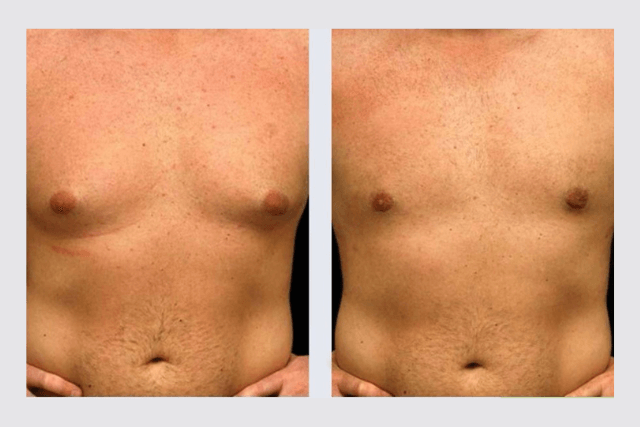For many women, the transition into menopause brings with it an unwelcome companion: weight gain. It can feel like a frustrating and inevitable part of this life stage. However, by understanding the reasons behind this change, you can actively manage your health and maintain a healthy weight. This comprehensive guide will explore the link between menopause and weight gain, explain the scientific reasons behind it, and offer practical, effective strategies to help you navigate this period successfully.
The Hormonal Shift and Its Impact
The primary reason for the connection between menopause and weight gain is the dramatic hormonal shift that occurs. As women approach menopause, their bodies gradually produce less estrogen. Estrogen plays a crucial role in regulating metabolism and fat distribution. As a result of this decline, several changes take place in the body.
First, your metabolism slows down. A slower metabolism means your body burns calories at a less efficient rate than it did in your younger years. Second, the location where your body stores fat changes. Before menopause, many women store fat in their hips and thighs, but after menopause, fat storage shifts to the abdominal area. This increase in visceral fat is particularly concerning because it is associated with a higher risk of heart disease, type 2 diabetes, and other health issues.
Furthermore, hormonal fluctuations can affect your appetite and mood. Many women experience increased cravings, particularly for sugary or high-fat foods. Additionally, mood swings, sleep disturbances, and night sweats can lead to stress, which in turn can contribute to overeating. These interconnected factors create a perfect storm for menopause and weight gain.
Lifestyle Changes and Maintaining a Healthy Weight
Successfully managing menopause and weight gain requires a holistic approach that focuses on diet and exercise. You can effectively counteract the metabolic changes by making smart lifestyle choices. This is not about crash dieting, but about adopting sustainable habits for long-term health.
First, you must focus on your nutrition. Prioritizing nutrient-dense foods is key. Include plenty of lean protein, fiber-rich fruits and vegetables, and healthy fats in your diet. These foods help you feel full and satisfied, which reduces the temptation to snack on empty calories. Likewise, limit your intake of processed foods, sugary drinks, and alcohol. These items offer little nutritional value and can easily contribute to weight gain.
Second, portion control becomes more important than ever. Since your metabolism has slowed, you need to eat less to maintain your weight. Use smaller plates and bowls, and pay attention to your body’s hunger and fullness cues. Ultimately, by adjusting your eating habits, you can take control of your weight.
The Role of Physical Activity in Menopause
Physical activity is a powerful tool for combating the effects of menopause. Regular exercise helps to boost your metabolism, build muscle mass, and improve your mood. Therefore, you should aim for a combination of cardiovascular exercise and strength training.
- Cardiovascular Exercise: This type of exercise, such as brisk walking, jogging, cycling, or swimming, burns calories and improves heart health. Aim for at least 150 minutes of moderate-intensity cardio per week.
- Strength Training: Building and maintaining muscle mass is critical because muscle burns more calories at rest than fat does. Incorporate strength training exercises using weights, resistance bands, or your own body weight at least two to three times per week.
Regular physical activity also helps to reduce stress and improve sleep, which can further aid in preventing menopause and weight gain. You will find that regular exercise not only helps you manage your weight but also makes you feel stronger and more energetic.
Managing Stress and Sleep Patterns
Stress and a lack of quality sleep can significantly impact your weight. During menopause, hormonal changes can disrupt your sleep cycle, leading to fatigue and increased cravings. Similarly, stress can cause your body to release cortisol, a hormone that promotes fat storage, especially in the abdominal area. For these reasons, managing stress and sleep is essential.
Practice relaxation techniques such as meditation, deep breathing exercises, or yoga to help lower your stress levels. Additionally, establish a consistent sleep schedule and create a relaxing bedtime routine. Avoid caffeine and alcohol before bed, and ensure your bedroom is a comfortable and dark environment. By addressing these factors, you can reduce the hormonal and physical triggers that contribute to weight gain.
Finding a Support System
The journey through menopause can feel isolating, but you do not have to go through it alone. Finding a support system can make a significant difference in your ability to manage menopause and weight gain. Talk to your friends, family, or a healthcare professional about what you are experiencing.
Consider joining a support group for women going through menopause. Sharing your experiences and hearing from others can provide encouragement and valuable insights. A registered dietitian or a certified personal trainer with experience in women’s health can also provide personalized guidance and create a plan tailored to your specific needs. Ultimately, a strong support system can keep you motivated and accountable.
Medications and Hormone Replacement Therapy
In some cases, lifestyle changes alone may not be enough to manage the symptoms of menopause. Therefore, some women may consider hormone replacement therapy (HRT) or other medications. HRT can help to balance hormonal levels, which can in turn help to regulate metabolism and reduce some menopausal symptoms.
However, you should discuss all of the potential risks and benefits with your doctor. Your healthcare provider can help you determine if HRT is the right option for you based on your individual health history. It is important to note that while HRT can be beneficial, it is not a magic bullet. You must still adhere to a healthy diet and regular exercise routine to achieve and maintain a healthy weight.
Conclusion: Menopause and Weight Gain
The connection between menopause and weight gain is real and multifaceted. It involves a complex interplay of hormonal changes, a slower metabolism, and lifestyle factors. While this can feel overwhelming, you can take control of your health. By making informed choices about your diet, prioritizing physical activity, managing stress, and seeking support, you can successfully navigate this transition and maintain a healthy, active life. Remember that this period is a natural part of life, and with the right approach, you can manage the changes gracefully and confidently.



